Dehradun (Uttarakhand) [India], December 2: Chief Justice of India DY Chandrachud said on Saturday that for all citizens to feel free in a democracy, the state must side with the weaker population, which may be a numerical or social minority.
The CJI's remarks came while he was addressing a gathering at the Justice Keshav Chandra Dhulia Memorial Lecture. Justice Keshav Chandra Dhulia is the father of sitting Supreme Court judge Sudhanshu Dhulia. CJI DY Chandrachud Says Need New Theories To Govern Free Speech in Era of Fake News on the Internet.
"Democracy unleashes the aspirations to fundamentally reorder social relations in a completely new way. It is premised on the recognition that there is no natural source of authority that can exercise power over individuals. Therefore, people are presumptively free and equal. This presumptive equality in a democracy hardly reflects the reality of our society," CJI said.
"Democracy is contingent on certain minimum guarantees where free citizens can genuinely claim control over the circumstances of their own lives. First, it must routinely produce consensus decisions without arbitrary or unfair impositions of power. Second, citizens must participate in civil and political discourse and have an interest in it. This is a social world where the moral status of citizens is acknowledged, a world which is structured to enable their freedom and serve their interests. Third, citizens must associate with each other, not only as competitors but in a relationship of reciprocal recognition and mutual respect," CJI said.
CJI said that these consensus, discourse, and association can only happen where democracy acts towards the ends of uprooting social hierarchies and prejudices. For all citizens to feel free in a democracy, the state must side with the weaker population, which may be a numerical or social minority, CJI said.
CJI opined that the beauty of a democracy is the sense of moral status with which all citizens can participate in a country and the consensus in its decision-making. In a democracy, the majority will have its way but the minority must have its say, CJI said.
Expressing his opinion, he also said that a deliberated outcome accords legitimacy to the institutions of governance. It is the difference between a defeated idea and a disenfranchised democratic participant. While the former may eventually erode with time, the latter militates against the very foundations of a deliberative, engaging Constitution, CJI remarked.
Talking about diverse democracy, CJI said, "It is quite likely that certain opinions are heftier for reasons other than their intrinsic merit. There will, of course, be outcomes that are favourable to some more than others. If we truly manage to incorporate all streams of ideas into our decision-making, processes, that by themselves will not lead to outcomes that are acceptable to every participant," he said. In a Democracy the Majority Will Have Its Way but the Minority Must Have Its Say, Says CJI DY Chandrachud While Speaking on 'Democracy, Debate and Dissent'.
CJI opined that "Dissent emerges from profound questions about the working of the society." Abolition of slavery, the annihilation of caste, the emancipation of gender minorities, and religious harmony were all once dissenting opinions, CJI further added.
However, these dissents hold the power to fundamentally restructure our society by sparking an important conversation. These dissents emerge not from thin air but from a democratic culture of fierce debates. Therefore, a society that does not encourage its citizens to critically think, question the powers that be, and engage in non-conformist democratic discourse will fail to progress because it will fail to create dissenters, the CJI said.
(This is an unedited and auto-generated story from Syndicated News feed, LatestLY Staff may not have modified or edited the content body)



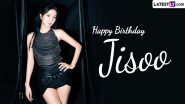


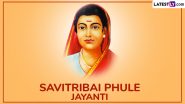




 Quickly
Quickly









